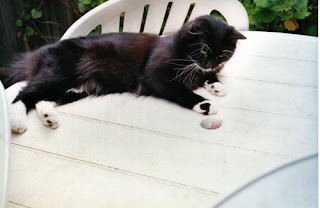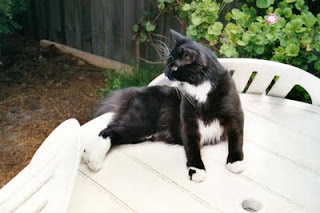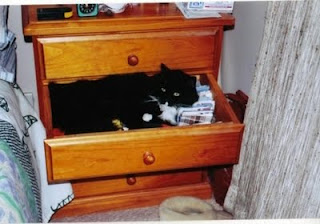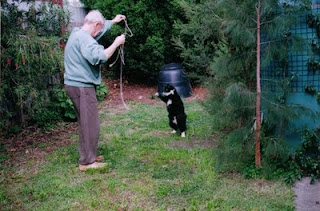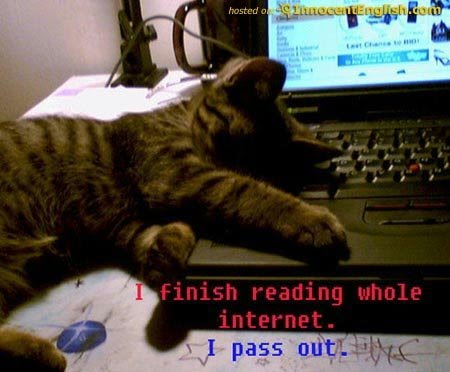
2 MARCH 2011
In the "arena" magazine No. 111 under the heading "Correspondence on the Intervention", by Jeff McMullen, two letters were posted, one from Jenny Macklin, Minister for Families, Housing, Community Services and Indigenous Affairs, and a response from Dr Jeff McMullen, CEO (Honorary), Ian Thorpe's Fountain for Youth.
We contacted Dr McMullen to ask whether we could obtain permission from arena and himself to publish the letters on our web pages. Dr McMullen wrote back kindly giving us his permission, and the two letters follow, Minister Macklin's first and Dr McMullen's reply afterwards.
The correspondence makes very interesting reading.
The Hon Jenny Macklin MP
Minister for Families, Housing, Community Services
and Indigenous Affairs
Parliament House Telephone- (02) 6277 756,0
CANBERRA ACT 2600 Facsimile: 102)6273 4122
MCI 1-001815 2MAR2011
DrJeffMcMullen AM
Chief Executive Officer (Honorary)
Ian Thorpe's Foundation for Youth
PO Box 402 MANLY NSW 1655
Dear Dr McMullen
Thank you for your letter of 15 November 2010 to the Minister for Sustainability. Environment. Water, Population and Communities, the Hon Tony Burke MP, about the film "Our Generation". Your letter was referred to me as this matter falls within my portfolio responsibilities. I apologise for the lengthy delay in responding.
While the "Our Generation" film canvasses a range of issues, it is apparent that the primary area of criticism in the film, and in your letter, is the Northern Territory Emergency Response (NTER).
I acknowledge that the instigation of the NTER by the previous government was a major shock to many Aboriginal people and communities in the Northern Territory and was seen as a serious affront. There was no consultation before it was initiated, and the nature of some of the measures and coercive tone utilised undoubtedly caused anger, fear and distrust.
It also needs to be acknowledged, however, that a widespread emergency did exist and continue.s to exist in many remote communities, with high levels of family violence, child neglect, appalling health status, low rates of school attendance, and high levels of crime including violent crime, and widespread drug and substance abuse. Any one of these factors has the potential to permanently damage or destroy a person's life opportunities. Taken together, they constitute a fundamental and endemic threat to the human rights not just of individuals, but of whole communities.
The Australian Government has attempted, with some real success, to acknowledge and span both these realities. We have retained the NTER because we believe action was and is required. We have attempted to progressively reshape it to make it more respectful and effective. In doing this, we have acted in good faith, with determination, and in a genuine attempt to further the best interests of both Aboriginal people and families in the Northern Territory and the Australian nation as a whole.
Clearly, this is an area of public policy where there is a wide variety of views and where community consensus is not easy to find or to forge.
I do not accept the broad criticisms about the Government's significant efforts to address Indigenous disadvantage in the Northern Territory, nor the criticisms about the Government's record in meeting its international human rights obligations.
First and foremost, I wish to take issue with the way you have characterised the Government's actions in relation to the Racial Discrimination Act J975 (RDA) and the NTER.
The Government has fully reinstated people's rights and protections under the RDA in relation to the NTER. Under the legislation that was passed by the Parliament on 21 June 2010, all of the provisions in the NTER legislation that suspended the operation of the RDA are removed. In addition, all of the provisions in the NTER legislation that deemed certain measures to be special measures, such as income management, five-year leases and alcohol and pornography restrictions, have been repealed. This is not a "feigned reinstatement' of the RDA.
Before introducing this legislation, the Government undertook extensive consultations with Aboriginal people across the Northern Territory on future directions for the NTER. The consultation process included over 100 whole-of-community meetings covering all communities and town camps affected by the NTER, 11 workshops with regional leaders and key stakeholder organisations, and over 440 face-to-face discussions between Government Business Managers and individuals and small groups in communities. This was the most comprehensive engagement ever undertaken by government with Indigenous people in Australia.
The Government was influenced significantly by what it heard in the consultations and by the feedback from individuals and communities. A common theme expressed was that children, the elderly and women were now feeling safer, were better fed and clothed, were getting a better night's sleep, and there was less inappropriate pressure on income support recipients for money. People felt that this was due to the combined effects of various NT ER measures, including income management, alcohol restrictions, community stores licensing and an increased police presence in remote communities.
You claim that the NTER is a government takeover of privately-owned land and that people are forced to sign 40-year leases in exchange for housing and other services. This is not correct. Creating tenure arrangements which provide security to land owners, investors and land users. through mechanisms such as voluntary long-term leasing, is a critical step in closing the gap in Indigenous disadvantage.
Long-term leasing, based on agreements with land owners, is essential on communal title if we are to secure major public investments. Importantly, it also ensures that governments take responsibility, and are accountable, for housing construction standards, for long-term repairs and maintenance programs and to underpin tenancy management systems. All these issues underpin longer asset life spans and as a consequence contribute to less overcrowding.
Broader reforms to land tenure arrangements are also necessary to allow for the pursuit of home ownership and business opportunities on Indigenous lands. Economic development on Indigenous lands has traditionally been hampered by the communal ownership of land, preventing individuals from raising finances for commercial purposes and home ownership. The Government is working with Indigenous land owners and state and territory governments to make Indigenous lands in remote communities more suitable for economic development and home ownership opportunities.
In relation to the initial acquisition of five-year leases by the previous government, I recognise that the compulsory nature of the acquisition of township lands was counter-productive. The Government has committed that it will seek to replace them with voluntary leases upon their expiry in 2012. The Government has taken action to revise the boundaries and to ensure that rents are paid to landowners.
I agree that we must include Aboriginal people in setting future policy directions that affect them. The Government is committed to a reformed approach to engagement with Indigenous Australians, based on the principles of mutual respect, cooperation and mutual responsibility. In 2011, the Government will implement an Aboriginal and Torres Strait Islander Engagement Framework across its agencies to improve how the Australian Public Service engages with Indigenous Australians on the policies, programs and services that affect their lives. The Framework will drive the adoption of effective engagement as an integral part of day -to-day business.
The Government's commitment to improved engagement has been acknowledged by the United Nations Human Rights Council in its recent Universal Periodic Review process. The establishment of the National Congress of Australia's First Peoples was welcomed by the Council as a strong gesture of the Government's commitment to engagement with Indigenous Australians.
Australia also received encouraging support from many countries for its efforts to improve the human rights of Indigenous Australians, through its endorsement of the United Nations Declaration on the Rights of Indigenous Peoples, for the National Apology and for our commitment to pursue constitutional reform to recognise Indigenous Australians.
In conclusion, I can assure you that the Government is determined to continue its work in combating Indigenous disadvantage. The independent NTER Review Board found that the situation in remote Northern Territory communities and town camps remained sufficiently acute to be described as a "national emergency*. The Government found this evidence compelling. and continues to be focused on ensuring that the NTER delivers improvements to address the unacceptably high level of disadvantage and social dislocation experienced by Aboriginal people living in remote communities and town camps in the Northern Territory.
Thank you again for writing.
Yours sincerely
JENNY MACKLIN MP

21 MARCH 2011
The Hon Jenny Macklin MP
Minister for Families, Housing, Community Services
And Indigenous Affairs Parliament House Canberra ACT 2600
Dear Minister,
21st March 2011.
The Australian Government has finally admitted that the Northern Territory Emergency Response was a “major shock” and a “serious affront” causing “anger, fear and distrust” in Aboriginal communities. The Government and the Opposition Leader, Tony Abbott, also now admit that there was “no prior consultation” with Aboriginal people. Mr Abbott adds that, “One of the problems with the Intervention was its ‘top-down’ nature.”
If you seek “a reformed approach to engagement with Indigenous Australians” as you indicate, I urge you and the Prime Minister, Julia Gillard, to consult soon on their homelands with the overwhelming majority of leaders who oppose the Intervention, including Dr Djiniyini Gondarra OAM of Galiwinku, Elcho Island and Rosalie Kunoth-Monks OAM of Utopia, because you have not addressed their grievances or indicated how the Australian Government sees a constructive way to move forward.
Your letter to me of 2nd March 2011 arrives after a long Government silence on the anguished protests by people in remote communities and the appeals by Traditional Owners, many eminent Australians and human rights advocates here and around the world who are disturbed by the ongoing, serious violations of Aboriginal rights as a result of the Northern Territory Emergency Response.
Your letter avoids these important facts:
1. The Committee for Elimination of Racial Discrimination (CERD) in Geneva has judged that the Intervention continues to discriminate on the basis of race and that it reduces people’s rights to land, property, social security welfare, adequate standards of housing, cultural development, work and legal remedies.
2. The UN Special Rapporteur, Professor James Anaya, one of the world’s most respected human rights authorities, states that the Intervention is clearly discriminatory and puts Australia in breach of the Convention on the Elimination of All Forms of Racial Discrimination, the International Covenant on Civil and Political Rights and the Declaration on the Rights of Indigenous Peoples.
3. The discrimination of the NTER remains in full force including compulsory leasing to Government of Aboriginal community lands, the loss of the right to dignity by the erection of discriminatory signs outside communities prohibiting alcohol and pornography, the targeting of Aboriginal people for social engineering through Basics Cards and management of half of their money, the authorizing of Government Business Managers to exert extraordinary and sweeping influence over Aboriginal community life and the unjust removal of Traditional Owners and Aboriginal community organisations from control over the destiny of their communities. Each provision puts Australia in breach of its obligations.
4. The UN Special Rapporteur, explicitly warns that the Australian Government “should avoid imposing leasing or other arrangements that would undermine Indigenous people’s control over their lands.”
5. By maintaining compulsory 5 year leases until 2012 the Australian Government is undermining Indigenous people’s control over their lands. Traditional Owners and community members have lost the right to make key decisions in the township area for the period of the lease.
6. The Australian Government’s amendments to the Land Rights Act (Northern
Territory) 1976 and the National Partnership Agreement for Remote Indigenous Housing (COAG 2009) clearly is undermining Indigenous people’s control over their lands by vesting authority in Executive Directors of Township Leasing and insisting on leases shamefully equivalent to the life expectancy of many people in these communities.
7. The Australian Government has not responded to the calls by an overwhelming majority of the Aboriginal leaders in these occupied communities to end the Intervention now.
Your words to me are strikingly different to those you used when the Howard Government made the first dramatic alterations to the Land Rights Act. You will recall that we both attended the National Reconciliation Planning Workshop in Canberra in May 2005 when Prime Minister John Howard declared that Aboriginal land tenure had to be changed. A year later, as Traditional Owners and communities lost direct control over development and township land, you said in Parliament:
“The Aboriginal Land Rights Act of 1976 was the first and strongest legal recognition of the profound connection that Indigenous people have to their country. It recognized the communal nature of land ownership in Aboriginal law and culture through a form of freehold title. The Act, back in 1976, represented the most significant set of rights won by Aboriginal people after two centuries of European settlement.”
Since you became a Minister in the Australian Government, however, we have seen further changes to the Land Rights Act, giving the Executive Directors of Township Leasing greater powers over Aboriginal people through leases over community living areas and subleases of town camps. Furthermore, you are extending this challenge to Indigenous people’s control over their lands by expanding a policy aimed at ending or changing communal ownership of Aboriginal Land.
You bluntly assert that “economic development on Indigenous lands has traditionally been hampered by the communal ownership of land”. This is an ideological view, easily contested by a wider knowledge of Indigenous history both here and around the world. I would refer you to the work of the Harvard Project on American Indian Economic Development (2008) and research by Nobel Laureate economist, Elinor Ostrom, who has shattered the myth of the so called “tragedy of the common” while producing evidence that, for Indigenous people, communal land ownership is so often a key ingredient of successful development.
The Indigenous concepts of custodianship, community and family, not only have guided humanity through countless millennia, they still have lasting value for Australia today.
Custodianship tells us that every one of us has an individual and a collective responsibility to contribute to the wellbeing of family and community. This sense of communal value gives us a longer view, a concern for what we may leave for our children and all of those to come. In this way it shares something with earth science in that it invites us to look past narrow, material self-interest to think of the common good.
It was these values that sustained the Children of the Sunrise and explain why Indigenous people today, as a collective, a people valuing the communal right, are the world’s oldest, continuous Culture. It was these communal values, custodianship, community and family, that gave Indigenous people the resilience to survive the invasion, the theft of their land, the spilling of their blood, the gaoling of their people, the removal of their children and all of the perverse policies that express the relentless assault
on their right to land and Culture.
I ask you, why is Australian Government policy still bent on the assimilation of Indigenous people and the destruction of their communal values, when these have proven to be, through the longer timelines of history, the essence of their identity and their well-being?
The most damaging feature of contemporary Government policy towards Indigenous Australians is your determination to exert far greater control over their lives and their lands. This is evident across the country, from Western Australia to Cape York.
The West Australian State Government of Colin Barnett has compulsorily acquired land at James Price Point on the Dampier Peninsular, trampling Native Title negotiations to allow Woodside to proceed with a 30 billion dollar gas processing facility. This is theft of Aboriginal land.
A Noongar Native Title victory on some land around Perth was blocked at once by an appeal by the State Government. Despite the rulings of our High Court that terra nullius was a lie and the historic rulings on Wik and Mabo, we continue to look right through Aboriginal people who protest that they have never surrendered their sovereign land rights.
Here and there Indigenous people win back a few local rights after years of court battles and the deaths of many of their elders, but this occurs when there is no clash with the dominant settler society. The theft of Aboriginal land continues. Native Title is little more than a legal contest for the scraps and an affirmation that the economic and political forces dictating to the rest of Australian society control the wealth of the land.
There is a widespread and profound misunderstanding about the importance of Indigenous Land Rights. The prevailing policies of the A.L. P. Government and the Coalition in Opposition share a fixation on controlling Aboriginal people and their communities so that there is no impediment to the rapid exploitation of minerals that feeds this so called once in a lifetime commodities boom.
Ironically, it is the wealth of Indigenous lands that could transform the poverty, welfare dependency and that critical gap in life expectancy. While so much has been taken away from Indigenous people, restoring their genuine land rights and control of their lives is one of the few reasonable measures of redress that could lead to social equality. Having denied the Stolen Generations compensation, what compensation does your Government have in mind for the exploitation of mineral wealth and the outright theft of Aboriginal lands?
In 1947, the year I was born, one of Australia’s finest jurists, Justice Dixon ruled that there was a clear difference between “compensation” in the sense of full monetary equivalence and “just terms” that implied “fairness” in dealings with Indigenous claims. Let us apply the fairness test to the current compulsory acquisition of Aboriginal lands and imposition of leases. If a fair and just portion of the mineral wealth flowed to our half a million Indigenous citizens, Australia would have none of those gaps within a generation.
Despite our national mythology about the land of the fair go, we continue to deny “just terms” and
“fairness” in our most important dealings with our most disadvantaged citizens.
In this sense, the new assimilation is the same as the old assimilation, reeking of injustice, paternalism and discrimination. Indigenous Australians are the only whole social group whose freehold land and communities have been taken over by Australian Government.
Aboriginal communities have always had the option of approving investment and development on their terms. For a very long time, Governments simply shirked their responsibility to make such an investment. The Australian Nation has failed to invest fairly in the wellbeing of all of its children.
My direct experience over many years in the First Nations of the United States reinforces the historical evidence that the carving up of Indigenous communal lands does not miraculously create private home ownership. Instead it often leads to debt traps, where low-income people are forced into foreclosure, eventually losing their home and their land. Over time this degrades the collective value of their land.
Impoverished Aboriginal people are so easily exploited. Since Indigenous unemployment over the years of your Government has grown from 13.8% to 18.1% there is little prospect of people in remote communities realising your dream of privatisation. Even the World Bank after researching the global pattern of Indigenous development concluded that “eliminating or replacing customary tenure is often neither necessary nor desirable.”
Your letter omits any recognition that if Australia is to live up to its stated support of the Declaration on the Rights of Indigenous Peoples (even with your Government’s hesitancy to enforce this with a legal framework here in Australia) our nation must acknowledge the rights of Indigenous people to control their lands and to practice their Culture.
The NTER legislation (s 91) is glaringly inconsistent with the Declaration on the Rights of Indigenous Peoples and Australia’s Racial Discrimination Act. This is not addressed in your letter.
Only Indigenous Australians have been discriminated against through this loss of a fundamental legal right to have their Customary Law and Cultural practices considered by a judge during legal proceedings.
In the Northern Territory Supreme Court in January 2011, Justice Steven Southwood, lamented the fact that the NTER Act prevented a sentencing court “from taking into account information highly relevant to determining the true gravity of an offence and the moral culpability of the offender”. You would be aware that this case involved the desecration of a Sacred Site at Numbulwar in the NT Gulf Country by an Intervention building crew. If this had happened in St Mary’s Cathedral in Sydney there would be outrage and the legal judgement would reflect the grave slight this caused to people of Christian
beliefs.
Australia is denying Indigenous people full justice and recognition of an important legal precedent in Australia’s Common Law system. Why not listen to the Supreme Court Judge? Acknowledge that this right must be restored to Indigenous people by repeal of the NTER Act (s 91).
I am surprised that you do now acknowledge that the “instigation of the NTER by the previous government was a major shock to many Aboriginal people and communities in the Northern Territory and was seen as a serious affront. There was no consultation before it was initiated, and the nature of some of the measures and coercive tone utilised undoubtedly caused anger, fear and distrust.”
Given the haste of the A.L.P. to support the NTER legislation while you were in Opposition, it would have been wise to establish an open, transparent process of genuine consultation. Instead you have choreographed meetings and expected Aboriginal people to rubber stamp the policy paper you presented. Your own review of these consultations revealed the widespread opposition as the bitterness and sense of betrayal of Aboriginal people deepened.
There was and is no “prior, informed consent” to the Intervention. This policy, as Tony Abbott now admits, has been imposed by Government, “top-down” against the will of the majority of Aboriginal people in these communities undermining any claim to its legitimacy and underscoring its unlawfulness in the judgement of International human rights authorities.
While you refuse to meet the Traditional Owners whom reject your policy you continue the “serious affront” that you attribute to the manner in which the Intervention was launched in 2007. By refusing to enter a genuine partnership with these communities you undermine the trust and goodwill that was in the air after the National Apology to Indigenous people.
Aboriginal people are still waiting for a Government Apology after the ruling by the Australian Crime Commission that there were no paedophile rings in the 73 remote communities targeted by this state of emergency. Have we forgotten the shame and the lasting damage done by this dangerous slander of all Indigenous people? It is not fair for you to attribute this “serious affront” only to the Howard Government as your political party supported the NTER from the outset.
Much of your letter is a defensive and dubious argument about the good you claim to have delivered through this Intervention. You show no willingness to acknowledge that by the Northern Territory Government’s reckoning the number of Aboriginal children at risk of neglect has more than doubled during the years of the Emergency. The Intervention has caused a sharp and painful increase in stress on Aboriginal people. School attendance in many of these communities targeted by the Intervention has worsened. Most disturbingly, suicides have increased.
A consequence of the shock and awe in Indigenous policy-making is that the political discourse has become hysterical. The Australian newspaper recently carried a front page story in which Mal Brough, former Minister for Indigenous Affairs and one of the architects of the Intervention, says the NTER has become too soft under your Government and that he supports the call for more desert detention camps to sweep up the fallen and the forgotten from the streets of Alice Springs.
In his latest foray into Indigenous politics, Tony Abbott calls for a “new Intervention” in the larger towns in the Northern Territory including Alice Springs, Katherine and Tennant Creek. Mr Abbott states bluntly that the Intervention has caused many Aboriginal people to move from the remote settlements increasing social dysfunction in the larger towns where they have largely unrestricted access to alcohol, inadequate accommodation and few support services.
This worsening crisis is a direct consequence of the NTER and the Government policy of concentrating funding in twenty so called “Growth Towns” in the Northern Territory. The hard drinking in the long grass on the fringes of many of the larger towns has confirmed the expected pattern of family disintegration and social drift.
The Intervention is social engineering at its worst and the most damaging policy inflicted on
Indigenous people since the Stolen Generation.
A reasonable discussion of the alcohol problems in Alice Springs, which both you and Mr Abbott say that you seek, would begin by admitting that Australia has a drinking problem. Stop stereotyping Indigenous people and targeting them with calls for “behavioural change”. Address alcoholism and unrestricted use of alcohol as a national, social problem.
The Northern Territory is Australia’s binge-drinking frontier. We all must face up to this honestly. Global estimates show that in Ireland people consume 13.7 litres of pure alcohol per annum, 13.0 litres in the Czech Republic, but, think about this, 14.9 litres per person in the Northern Territory as a whole and in Alice Springs, 20.38 litres per person. Australia’s average as a whole is 9.8 litres. We lose track of these facts in the relentless stereotyping of Aboriginal people, forgetting that if you walk the main streets of Darwin or Alice Springs you will see a huge cross section of Australian society drinking to violent excess.
Courageous Aboriginal community leaders like June Oscar and Maureen Carter from Fitzroy Crossing in the Kimberley, have demonstrated that black and white people can work together to stop this poisoning of the human spirit. Are we willing as a society to curb the profits from grog, tax the liquor industry in a targeted way, treat addiction with care and compassion, while at the same time building the other community resources that are essential for well being? Social problems will get worse until we recognize the solution means acting responsibly together within the framework of custodianship, community and family. This is the antithesis of the discriminatory policies aimed at Aboriginal people.
Finally Minister, your letter bristles with indignation at my observation that the legislation that came into effect on January 1 2011 was a “feigned reinstatement” of the protection afforded to Indigenous people by the Racial Discrimination Act. Aboriginal elders and many other eminent Australians including Church leaders, barristers and former Prime Minister Malcolm Fraser, have characterised this action by your Government as seeking a “veneer” of non-discrimination or respectability.
Your letters to Australians concerned about discrimination may mislead some into believing that you have actually repealed the NTER policies, when in fact, as I have stated here at considerable length, the policy approaches essentially remain the same.
No amount of Ministerial spin can hide this fact. Your Government and its predecessor knew the Intervention was loaded with discrimination against Aboriginal people. That is why the Racial Discrimination Act had to be suspended from applying to the NTER. For over three years Australians, officially, have lived with discrimination. The discrimination remains.
Only Aboriginal people in Australia have ever suffered this humiliation of losing the right and the protection of the Racial Discrimination Act. Without a Charter or Bill of Rights, without changes to the race power in the constitution, without a commitment never to use the means of discrimination to justify the end, without such a commitment Indigenous Australians are without their most fundamental human rights.
I have saved some very personal words until last.
I am sorry to inform you today that one of the powerful, truthful voices you listened to in the film, Our Generation, the courageous woman who invited Australians to look at the overcrowding of her home and the poverty her family was left to endure, has died of chronic illness. This beautiful human being reminds us that the real emergency, the epidemic of chronic illness, is scything through another generation of Aboriginal people. She gave her every breath to end the Intervention.
Yours sincerely,
Dr Jeff McMullen AMEDITORIAL NOTE: THE FOLLOWING WEB SITE IS ABOUT "OUR GENERATION" AND THE FILM THEY HAVE MADE IS A MUST SEE FOR EVERYONE. DETAILS ARE GIVEN AS TO WHERE TO ORDER THE DVD WHICH ONLY COSTS $25. BUY IT NOW!!!
www.ourgeneration.org.au






